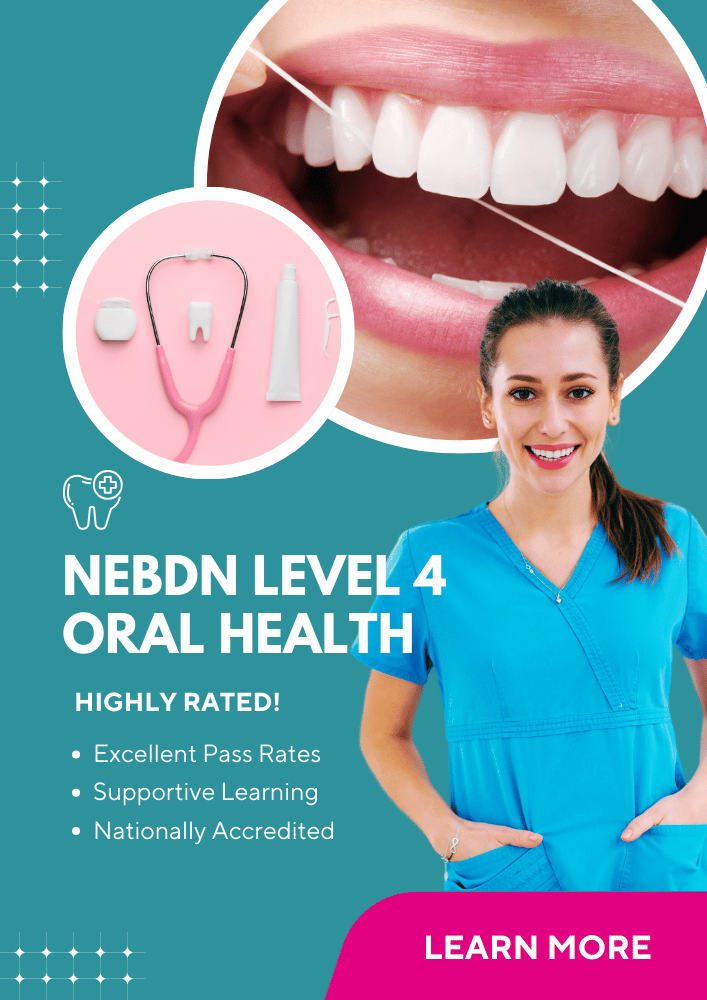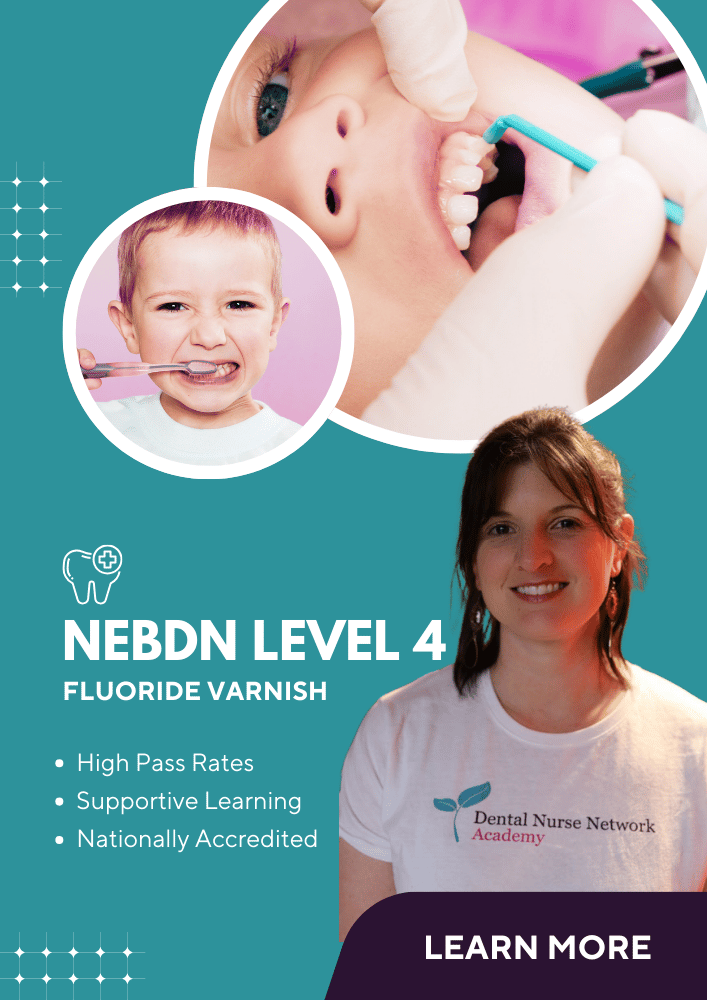 What's your background in dental nursing?
What's your background in dental nursing?
My whole working life has been spent in dentistry. My career began when I left school at sixteen and went to work in a hospital. They offered me a two-year trainee contract and I began my training as a community dental nurse.
Since then, I've worked my way up the ladder and have had various roles, but I've never been able to leave dental nursing behind!
What other roles have you worked in?
After working in the hospital, I went on to private practice for a while, where I specialised in dental implants. I learned a lot about cosmetic dentistry, including crowns, bleaching and that sort of thing. I thoroughly enjoyed it, but I found that I really liked the training element. I'd got my PGCE Certificate in Education from Staffordshire University, which qualified me to teach adults, and I found that I loved it.

I was very keen to develop my skills, so while working there I also did courses in dental radiology and implantology, eventually taking a course that led to me becoming a dental nurse assessor. I had to do it in my own time but it was worth it - I left my job at the private practice and became a full time assessor and tutor for students completing their dental nursing diploma.
What was that role like?
I really enjoyed it! It was very varied - I travelled around the whole of the West Midlands recruiting nurses onto our programmes, I promoted and sold our training programmes, and I used various assessment methods to work with the students.
I really believe that dental nurses should be aware of all the different avenues they can take within dentistry. Many might not even know that being an assessor is something they can do! There's a whole world out there aside from chairside assistance, and there are so many roles in which you can develop. We're very lucky in dental nursing, in that we can do these courses in the evenings while still earning a wage.
What further education has been the most important to your career?
I think it was actually my basic training right at the beginning of my career. I had the most amazing tutor, and it was she who inspired me to want to train staff myself. I think that to be able to do the job you have to be passionate about the subject area and the industry, and passionate about sharing that with other people. I was lucky in that my tutor was exactly that, and she instilled that in me and inspired me to want to do this job now.
What new challenges do dental nurses face in their jobs today, compared to when you began?
It's changed so much - when I first started it was very much that we were assistants led by the dentist, and our role was limited to hands-on procedures. The GDC registration changed all that, and we are now all encouraged to be better educated and able to carry out procedures like fluoride application, impression-taking and more. We've become much more useful in the surgery, and while that's a challenge, I think it's fantastic.
When I was a sixteen-year-old leaving school I saw dental nurses as clinical professionals, just the same as hospital nurses, but in some practices that was overlooked. We became someone who passed the dentist their instruments, and it could be very frustrating.
While that can still be a challenge occasionally, I see nurses gaining more and more recognition and responsibility every year, and I think that will only continue.
What can nurses do to enhance that recognition?
Try to improve your skills. Prove to your employer and the team that you're passionate about the role and that you want new responsibilities.
I think it's important to talk to your team. Ask your dentist: "Why are you doing that? What made you decide on that?" It shows that you're interested and inquiring, and not just daydreaming out of the window.
Dentists are coming round to the idea that we can make their working day a lot easier. Put those ideas forward to the team and show them how you can save them time; how you can be a useful member and help the team succeed.
What would your advice be to young nurses?
I tell the nurses I teach now: "If you're looking for a job that just pays the bills, this isn't the career for you. There's a huge number of opportunities and you can really succeed, but if that's your outlook then it isn't for you".
To be in this role you need to enjoy the job. You need to have a caring outlook on life and to really enjoy every day. You need to be reliable, hardworking and honest. It's hard, but if that sounds like you then you'll go far and will love every day of it.



